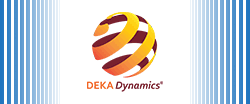Digital Mapping (Using Machine Learning)
- UAE (DUBAI): 17-19/2/24
- BULGARIA (SOFIA): 16-28/3/24
- GREECE (ATHENS): 18-20/5/24
- TURKIYE (ANKARA): 12-14/10/24
Course Brief
The Digital Mapping Course is a comprehensive introduction to the field of Data Science, Machine Learning and its application in Geoscience Mapping. It provides a thorough overview of the fundamentals of data science and the tools and techniques used for Predictions.
The course has been developed for Data management professionals, Logging geologists, Exploration geologists, Mapping geologists, Resource Geologists and any other professional interested in the evolving science of Machine learning and its application in Geoscience.
The course is divided into two primary modules:
- Introduction to Data Science:
This module provides an introduction to data science, covering its history, purpose, and the main components of the data science process. Participants will learn about the different types of data, the data collection process, data cleaning and preparation, and data visualization techniques.
- Digital Mapping
This module covers the methodology of using data collected from experiments and Covariates to predict unknown data values in a study area using machine learning. It explores the methodology of predicting lithology from geochemistry. Participants will learn about Random Forest classification/Regression algorithm.
COURSE OUTLINE:
- Introduction to Data Science
- Definitions and Concepts
- Installation of R and R Studio
- Data Import methods
- The R Interface
- Data Structures
- Prediction using Classification/Regression Algorithm
- Introduction to the Random Forest Model
Course Requirements:
A laptop is required for the workshop with administrative permission to add software.
Minimum specifications for laptops are:
- Windows™ operating system and an external mouse to navigate the software.
- Wi-Fi module for connection to the internet.
- An Intel-compatible platform running Windows 11, 10 /8.1/8 /7 /Vista /XP /2000
- At least 256 MB of RAM, a mouse, and enough disk space.
- The administrative privileges are required to install and run R‑Studio utilities.
Training data will be provided for the course. Please note that the software to be provided is open source.
Course Delivery:
This course is a hands-on coding course, led by the instructor. No experience in coding, scripting or macro writing is necessary.
About R Studio:
Open-Source: R-Studio is an open-source software and is the preferred programming language for Statisticians.
Easy to Use: R-Studio is a user-friendly platform that is easy to learn and use, even for those with minimal programming experience. The software provides a simple and intuitive graphical user interface (GUI) for creating and running R code. This makes it easier for users to quickly get started with the software and to explore its features.
Comprehensive: R-Studio offers an extensive set of features and tools that can be used to analyze data, create visualizations, and develop predictive models. The software also includes extensive documentation and tutorials to help users get up to speed with the platform.
Flexible: R-Studio is highly customizable and can be used for a wide variety of data analysis tasks. The software can be used to analyze and visualize both structured and unstructured data, and to build predictive models using a variety of machine learning algorithms.
Scalable: R-Studio can be used to analyze data sets of any size.
Contact us at enquiries@dekadynamics.com for more information


